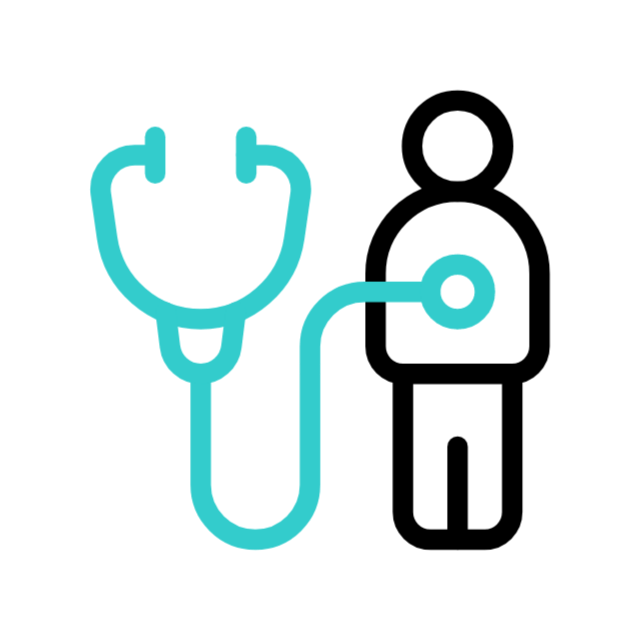Anaesthesia

Cardiac Anaesthesia
Cardiac anaesthesia is a specialised branch of anesthesiology devoted to the pre-operative and post-operative care of patients undergoing cardiac surgery and other neuromuscular surgical procedures. A cardiac anesthesiologist oversees a patient's vital functions, such as heart rate, blood pressure, and respirations, during complicated and in most cases life-threatening events such as open-heart surgery. The speciality demands superior knowledge of cardiovascular physiology and elevated skills in monitoring and managing critical incidents such as cardiac arrest or uncontrollable haemorrhage.
Reasons to perform Cardiac Anaesthesia
- Open-Heart Surgery: All open-heart surgeries, such as coronary artery bypass grafting (CABG), heart valve repair or replacement and heart transplants demand the use of Cardiac anaesthesia.
- Minimally Invasive Cardiac Procedures: Anaesthesia is also required in minimally invasive cardiac procedures and procedures involving catheter-based procedures, including transcatheter aortic valve replacement (TAVR).
- Complex Vascular and Thoracic Surgeries: Surgeries of the large blood vessels (e.g. aortic reconstruction) or organs within the chest cavity (e.g. surgery of the lung) involve the speciality of the cardiac anesthesiologist to support the cardiovascular and respiratory systems of such patients.
Effects of Cardiac Anaesthesia
- Patient Safety: The first impact is maintaining patient safety and stability during the procedure. Advanced monitoring aids cardiac anesthesiologists in ensuring that the heart and lungs of a patient are working correctly, even during the implementation of cardiopulmonary bypass.
- Organ Protection: The anesthesiologists have medications and methods that help to preserve the vital organs, especially the heart and the brain, during surgery so that the same sustains fewer injuries.
- Postoperative Care: Cardiac anesthesiologists play a vital role during postoperative care, where they care about the pain, respiration, and heart dynamics of a patient in the intensive care unit. This also ensures an easy recovery process and a lower likelihood of complications.
Neuroanesthesia
Neuroanesthesia is an anesthesiology sub-speciality that focuses on the neurosurgical patient in the perioperative period. This involves brain surgery, spinal surgery and peripheral surgery. Neuroanesthesiologists are essential in ensuring the patient's stability because of the sensitivity of such surgeries and the sensitive physiology of the central nervous system. Their monitoring techniques and anaesthetic agents are specialised to maintain sufficient blood circulation and oxygen supply to the brain and manage the aspects of the argument, such as intracranial pressure.
Signs of Neuroanesthesia
- Intracranial Surgery: Neuroanesthesia is necessary in surgeries such as craniotomies, to treat a brain tumour, correction of an aneurysm or for epilepsy treatment. These are surgeries that need perfect control of the brain volume and pressure.
- Complex Spine Surgery: Patients receiving complex spine surgeries, e.g., spinal fusions or tumour resections, will need neuroanesthesia to keep the spinal cord and nerves free of injuries.
- Neurointerventional Radiology: In non-surgical operations, which also frequently need the patient to be immobilised and pain-free (coiling of cerebral aneurysms, or mechanical thrombectomy in case of stroke), general anaesthesia is also given.
Effects of Neuroanesthesia
- Comfort of the Brain and Spinal Cord: The significant effect is to prevent pain in the brain and the spinal cord during the operation. Anesthesiologists can slow the metabolic demand of the brain through particular drugs and techniques, and in doing so, increase the tolerance of the brain to lower blood flow.
- Intracranial Pressure (ICP): Neuroanesthesia also enables the careful, controlled monitoring of ICP to ensure that it does not increase to unsafe levels. This is important to prevent brain herniation and ensure proper blood flow to the brain.
- Support of Neurological Monitoring: Anesthesiologists should select the anaesthetic drugs that do not falsely activate the advanced intraoperative neuromonitoring that enables the surgeons to monitor the real-time functioning of the brain and spinal cord
Pain management
Pain management is an area of medical specialisation concerned with diagnosing and treating acute (short-term) or chronic (long-term) pain. The aim is to minimise patients' pain, enhance their quality of life, and restore their functionality. Any of these approaches, medications, nerve blocks, physical therapy, and psychological support, may be administered by a pain management specialist. This is very personalised, since anyone who suffers has their case with pain.
Indications of Pain Management
- Chronic Pain: If the pain lasts longer than three months, this is a clear signal that a multifaceted pain control plan is needed to handle its effects on the physical, emotional and social health.
- Post-operative pain: It is also an essential component of post-surgery management as it involves pain control. It gives comfort, allows a patient to be engaged during rehabilitation, and excludes complications.
- Refractory Pain: Refractory pain occurs when pain in the patient cannot be removed by the use of conventional interventions or the use of simple pain medication, which can be purchased off the shelf. At this point, a pain management specialist can be used to provide additional options.
Effects of Pain Management
- Better Quality of Life: Pain often hinders the ability to work, socialise, and have pleasant activities; reducing that pain allows one to resume life. This makes their physical and mental condition considerably better.
- Improved Movement and Function: With effective pain management, the patient can undergo physical therapy and rehabilitation, which may help improve strength, range of movement and flexibility.
- Fewer adverse effects: An alternative pain management strategy can result in decreased reliance on high doses of medicine and reduced side effects of such drugs.
Palliative Care
Palliative care is a type of medical intervention that alleviates the symptoms and stress of a serious condition. This is aimed at enhancing the lives of the patient and the family. It is through a team of doctors, nurses, and other specialists that the rest of the collaborating patients' doctors are involved. Palliative care may be offered throughout any phase of a severe sickness, and it can be accepted together with curative treatment.
Indications of Palliative Care
- Serious Illness: The leading sign is a serious life-threatening illness, like cancer, heart failure or COPD, where the emphasis has changed into symptom control and comfort management.
- Uncontrolled Symptoms: Improperly controlled symptoms, such as pain, nausea, shortness of breath, and fatigue, exemplify distress and expectation of palliative care so that the patient might be helped when primary treatment fails to resolve the situation.
- Complex Needs: The palliative care team's specialised support can help patients with largely unmet complex physical, emotional, or spiritual needs that their primary medical team has not addressed.
Results of Palliative Care
- Symptom Relief: The most direct outcome is the significant alleviation of physical symptoms in a patient, which makes them feel more comfortable and healthy.
- Better Quality of Life: Palliative care responds to the patient's physical, emotional and spiritual needs, resulting in better quality of life as much as possible.
- Family Support: Palliative care offers practical assistance to a patient's family member to handle the stress of the disease and make crucial decisions.


 Insurance
Insurance Health Packages
Health Packages

